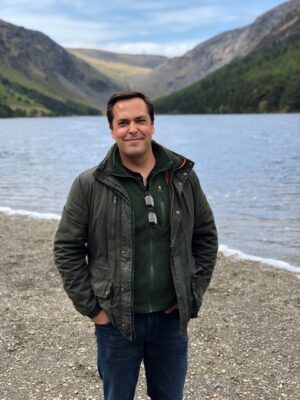
- This event has passed.
Ed Jolie – Chacoan Perishable Technologies in Regional Perspective
October 17, 2022 @ 7:00 pm - 8:30 pm MST
This lecture is brought to you by AAHS@Home and Zoom. It is free and open to the public but you must REGISTER HERE.
Between about A.D. 850 and 1140, the archaeology of Chaco Canyon in northwestern New Mexico reveals the rapid construction of large communal structures where smaller settlements had existed previously and shows that the locality became the core of an extensive regional system in the Four Corners region of the northern Southwest integrated by formal trails, the circulation of nonlocal goods, and the sharing of ritual items. Researchers debate the role of increased sociopolitical complexity in this development, but less attention has been given to questions of sociocultural diversity and its impacts. Guided by previous research suggesting the existence of sociocultural or biological diversity, I examined large numbers of baskets, mats and sandals seeking to distinguish patterned stylistic variability in woven artifact manufacture with implications for understanding sociocultural diversity within and across the Chaco system. This presentation focuses on the distribution of traditions of ritual basketry at Chaco Canyon and beyond to suggests linkages between the social entities that maintained them, first at Pueblo Bonito and, later, at outlying communities. Diversity in ritual practice emerges as factor that likely both facilitated a shared Chacoan identity and integrated newcomers.
For Further ReadingJolie, Edward A., and Laurie D. Webster2017 Perishable Technologies. In The Oxford Handbook of Southwestern Archaeology, edited by Barbara J. Mills and Severin Fowles, pp. 645-662. Oxford University Press, Oxford.2015 A Perishable Perspective on Chacoan Social Identities. In Chaco Revisited: New Research on the Prehistory of Chaco Canyon, New Mexico, edited by Carrie C. Heitman and Stephen Plog, pp. 96-131. University of Arizona Press, Tucson.Jolie, Edward A., Laurie D. Webster, and Benjamin A. Bellorado2018 A Woven Web of Regional Influence. In Chacoan Archaeology at the 21st Century: New Questions and Ongoing Revelations, edited by Jeffrey J. Clark and Barbara J. Mills. Archaeology Southwest 32(2-3):45-47Edward A. Jolie is Clara Lee Tanner Associate Curator of Ethnology at the Arizona State Museum and Associate Professor in the School of Anthropology at the University of Arizona. An anthropological archaeologist, he has broad interests in the Native American archaeology and ethnology of the Americas. Much of his research has focused on the study of perishable (organic) material culture (e.g., string, nets, footwear, baskets, and textiles) to address a wide range of anthropological questions, including those that bear on technological innovation and change, social interaction and identities, and population movement. Being of mixed Oglala Lakota (Sioux) and Hodulgee Muscogee (Creek) ancestry, and an enrolled citizen of the Muscogee (Creek) Nation of Oklahoma, he strives to cultivate collaborative relationships and research partnerships with Native Americans and other descendant communities.
 All Events
All Events
